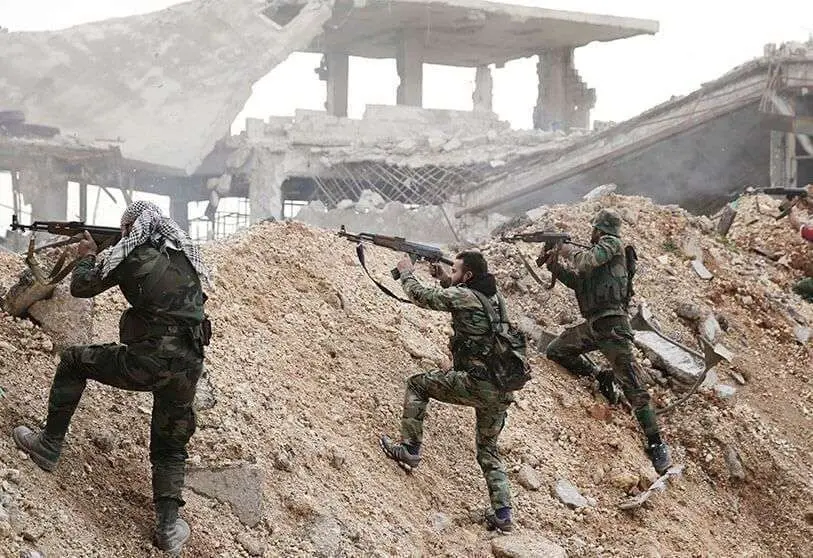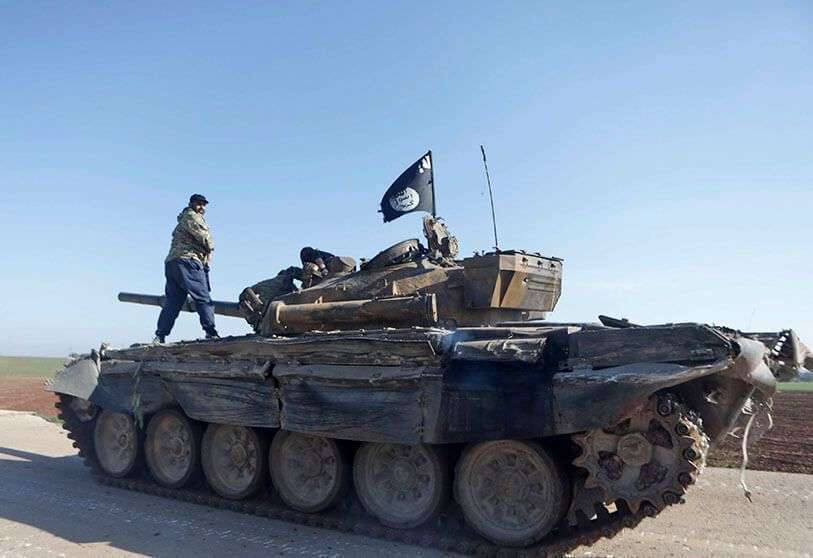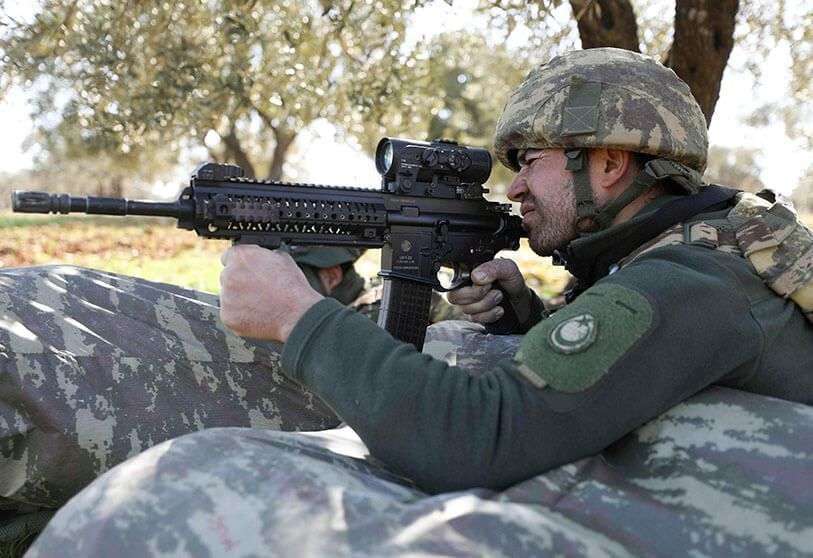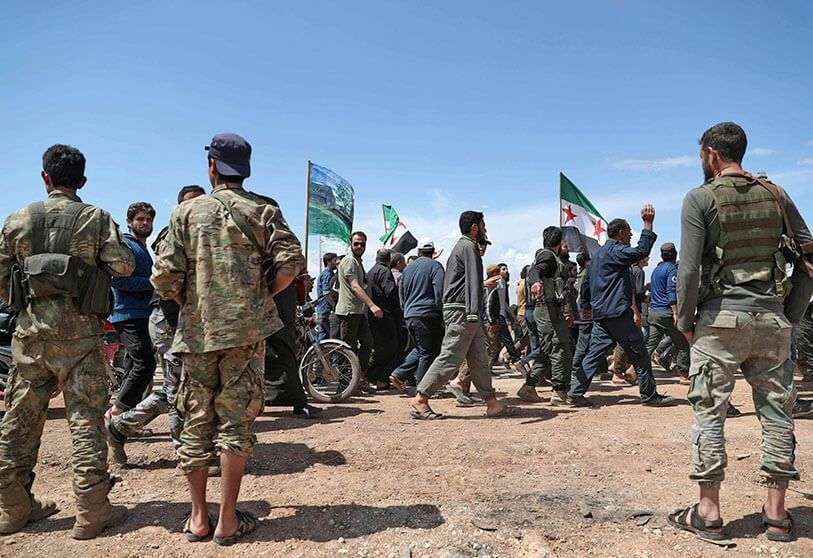Syria's umpteenth war

Broadly speaking, there are two distinct contenders in the war in Syria. On the one hand, Bachar al-Asad's Syrian Armed Forces, supported by the Russian Armed Forces, seeks to regain effective control over the entire national territory. On the other hand, the rebels who, backed by Turkey, defend their gains in the extreme northwest of the country.
So far, this is the most extensive picture. The detail, however, shows that these two sides are, in turn, made up of numerous actors whose interests do not always coincide. This circumstance can be seen with a clear-cut clarity in the case of opposition to the regime.

One of the most recent examples can be found in the direct confrontations between some factions of Hayat Tahrir al-Sham and Hurras al-Din, documented by the Syrian Observatory for Human Rights (SOHR). A priori, both are opposed to Damascus, but their strategic differences have led them to engage in increasingly intense internal struggles.
As part of the campaign conducted by Recep Tayyip Erdogan's government in northern Syria, one of its preferred partners has been Hayat Tahrir al-Sham (HTS). Over the past few months, the Turkish Armed Forces have entered the neighbouring country for two main purposes. Firstly, as an attempt to corner the Kurdish militias in these regions, which are grouped around the YPG, the Syrian faction of the PKK (Kurdistan Workers' Party). Secondly, Ankara is trying to gain as much influence as possible in a hydrocarbon-rich territory where Iran, a great geopolitical rival, also has interests.

To this end, in addition to sending its own troops, the Turkish Ministry of Defence has built up a large network of alliances with the various extremist groups in the opposition to Al-Asad. HTS has been a very important piece in that puzzle. The leadership of this jihadist organisation, widely regarded as the successor to the al-Nusra Front in Syria, has on several occasions reaffirmed its loyalty to the government in Ankara, even when some of its members have disagreed with the line taken by the leadership. It should be recalled that, until 2017, the entity was linked to Al-Qaida.
The entity, in the hands of the pragmatic Abu Mohammad al-Golani, has officially continued to fight alongside the troops sent by Erdogan, despite the fact that the Turkish leader has gradually taken over vast areas of land surrounding Idlib formerly held by the jihadists themselves.
Turkey has also committed to Russia, with which it has been holding a ceasefire in the de-escalation zone of Idlib since early March, in order to implement more effective counter-terrorism measures. Although this commitment is often more theoretical than practical, it has raised misgivings among many of the groups operating against Al-Asad who saw Ankara as an ally.
One of these entities is Hurras al-Din. The name of this group literally translates as ''Guardians of Religion Organization'' (GRO). Founded in February 2018, it is a relatively recent organization. The GRO is currently the most important group associated with the global Al-Qaeda network operating on Syrian territory. Its actual size is unknown, but it is estimated by the Counter Extremism Project to be between 700 and 2,500 members. About half are believed to be foreign fighters. Most of the organization's leaders are not Syrian either and are close to the original core of the terrorist network.

The leader is Khaled al-Aruri, also known by his 'nom de guerre' Abu al-Qasim al-Ordoni, which denotes Jordanian origins. One of the most prominent members of the Shura Council is Syrian: Samir Hijazi, founder of the organization that calls itself Abu Hamam al-Shami or Faruq al-Suri. The Guardians of Religion are guided by Salafism. Their ideological postulates, beyond the fights that may arise from time to time for the control of the territory, explain, to a great extent, the reason for their recent antagonism with Hayat Tahrir al-Sham (HTS).
The pacts of this organization with the Turkish government are in total contradiction with the ideological bases in which the jihadist groups usually protect themselves. According to Takfirian theory, any form of social organisation not based on the most restrictive interpretations of Islamic law is considered impure, which includes states as they are conceived in today's world.
Thus, the mere fact of considering a government as a valid interlocutor - be it the secularist government of Damascus or the increasingly Islamised one of Ankara - does not find a very clear fit within the admissibility of the world of jihadist groups. It is true, however, that groups associated with Al-Qaeda itself, such as the Group for the Support of Islam and Muslims (JNIM) in Mali and the Taliban in Afghanistan, have agreed to engage in peace processes with the executives of both countries.
In any case, from the point of view of the GRO, this argument provides a basis not only for fighting HTS on the ground, but also for increasing its recruitment capacity. A recent report issued by the specialist media Al-Monitor on the vast influx of fighters who, disappointed by the weakness of the HTS leadership, had decided to join even more extremist groups, including the GRO.








